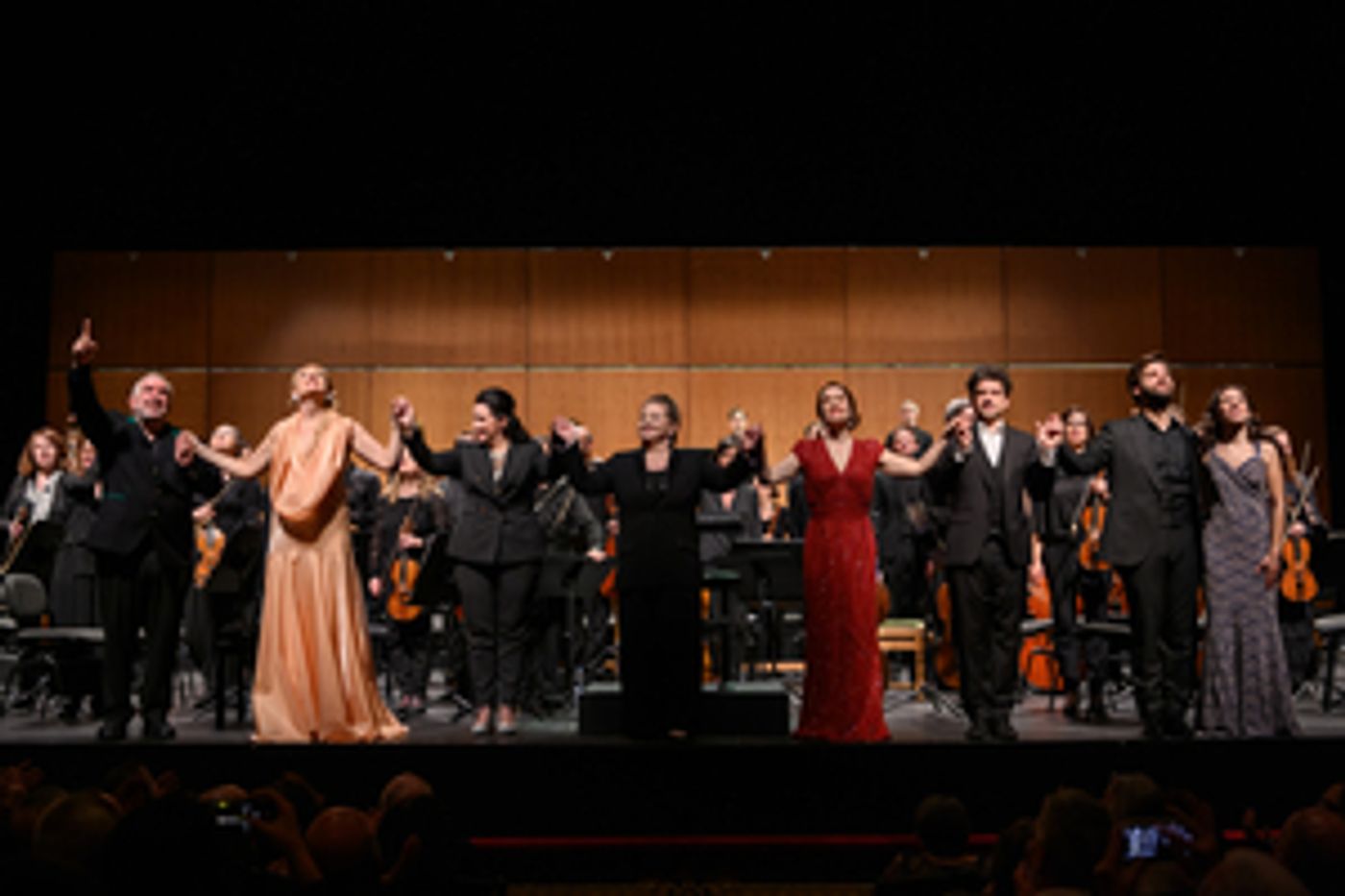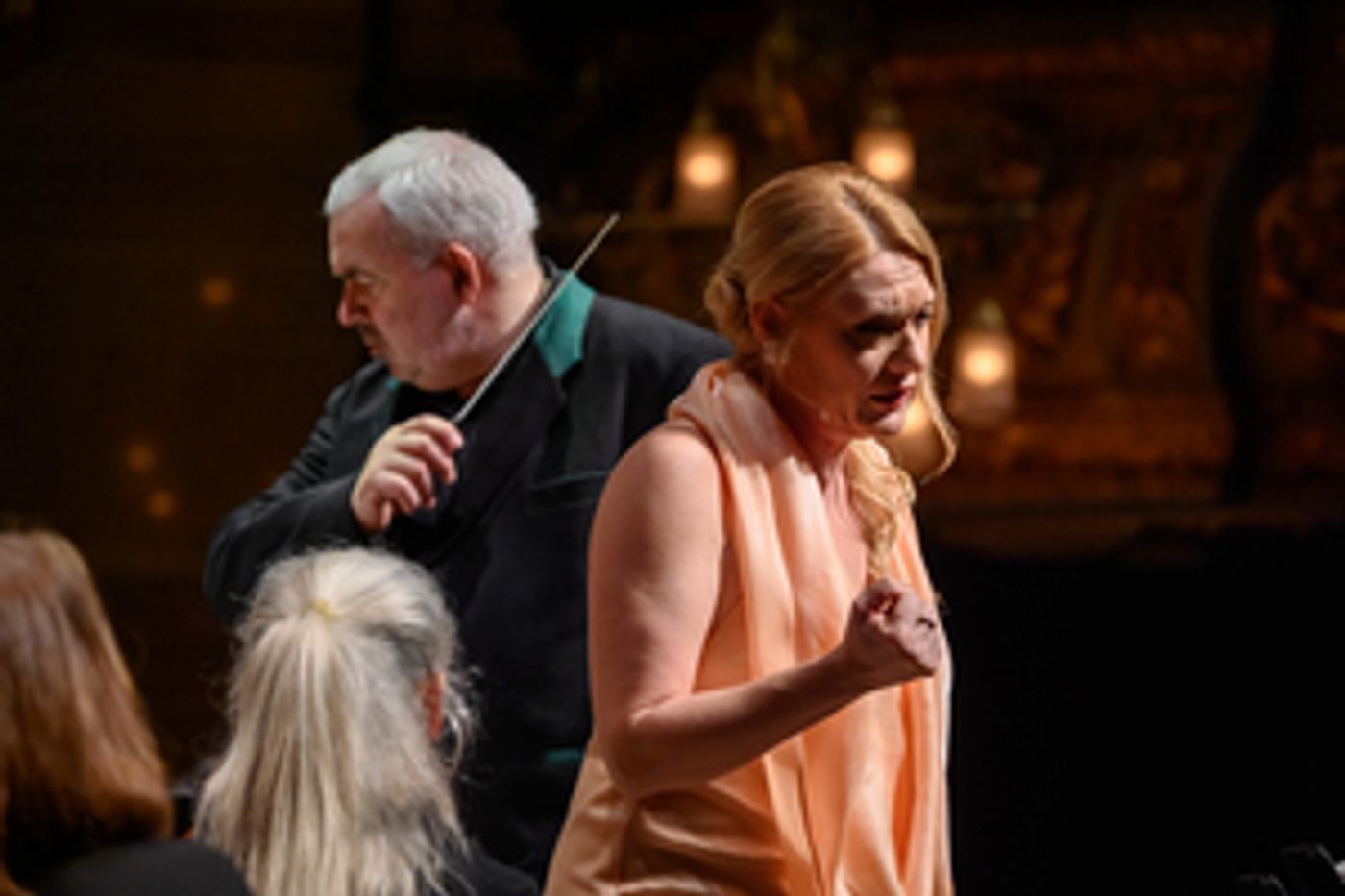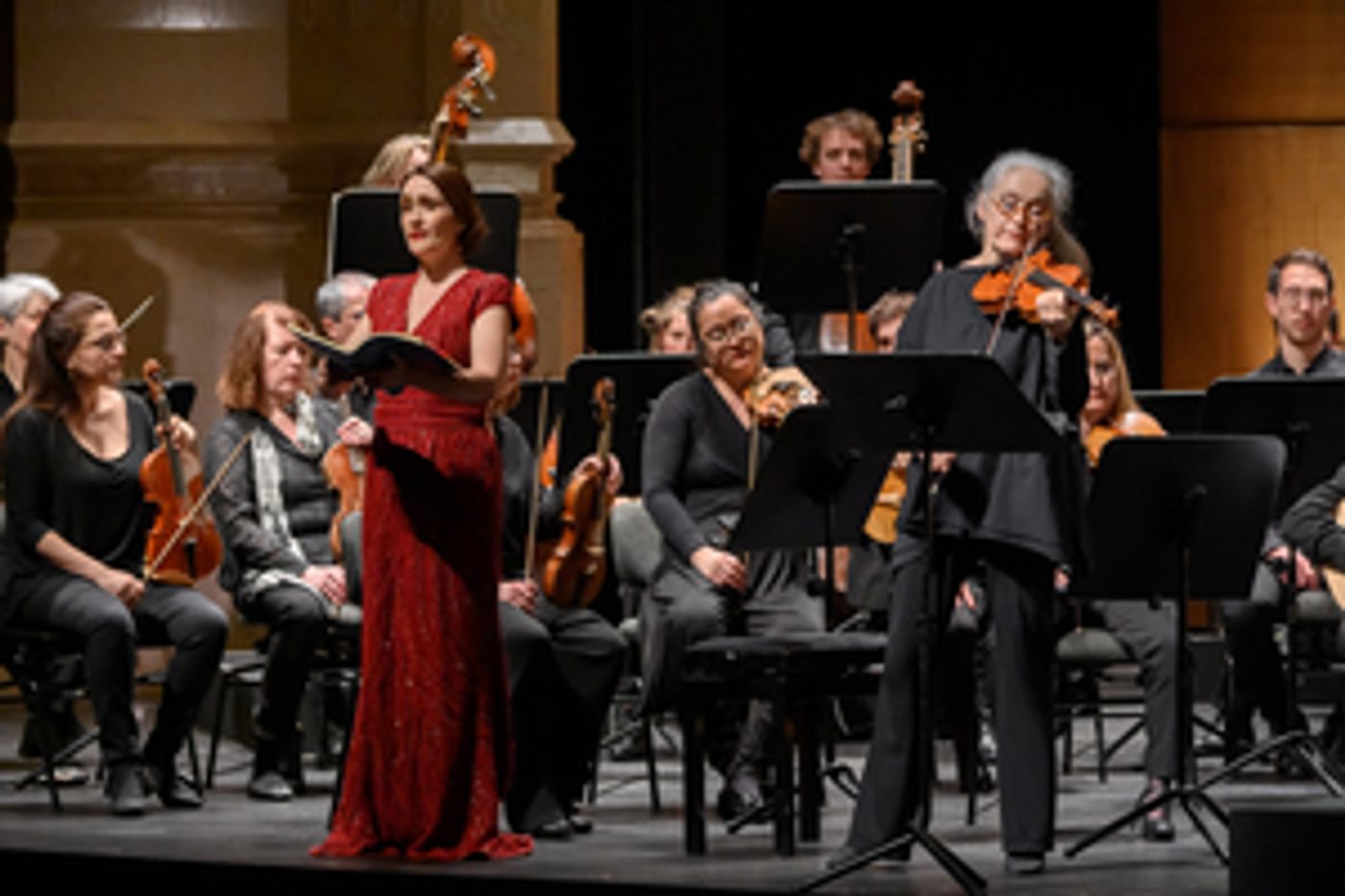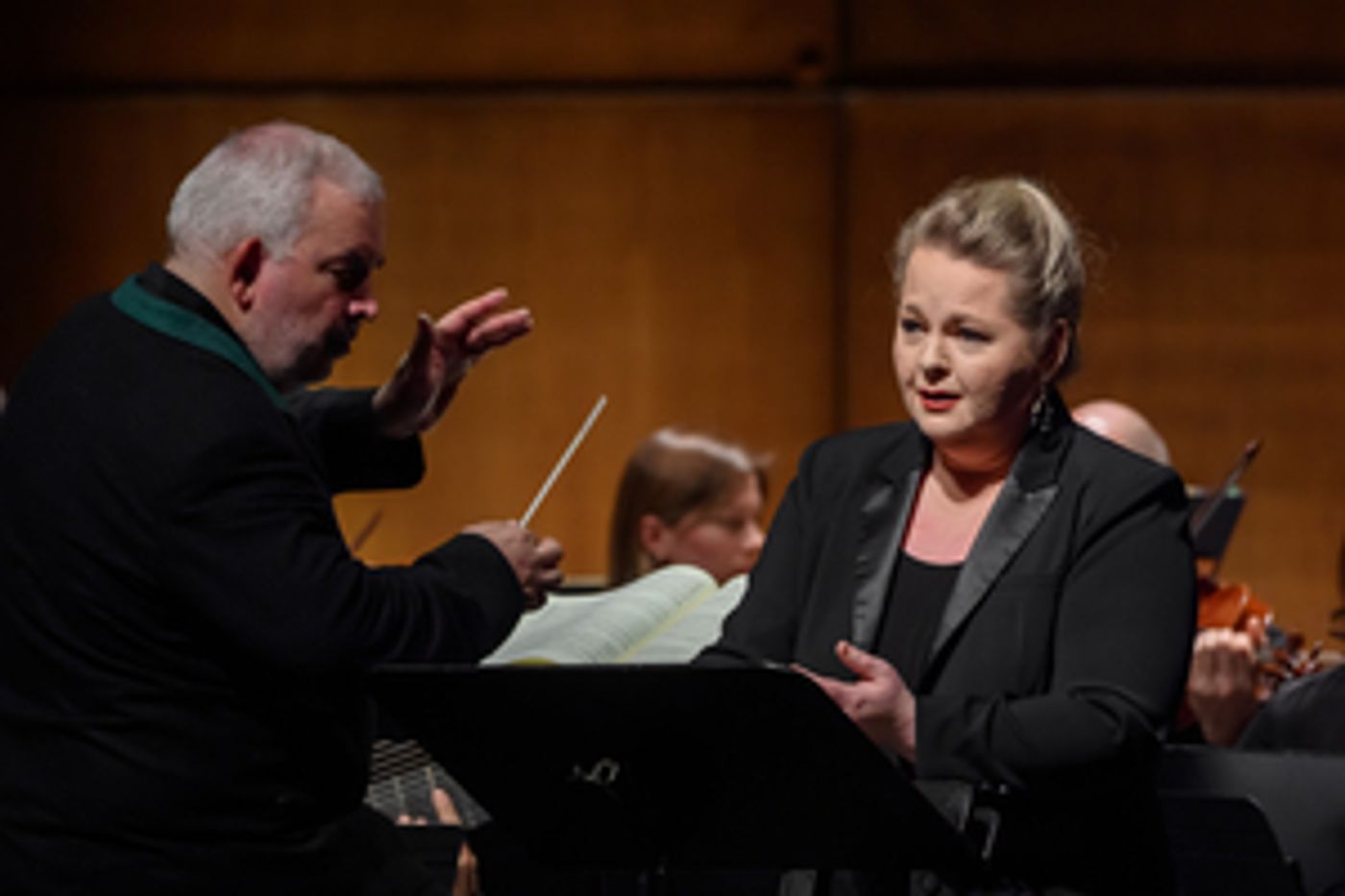Review: ALCINA in Concert, New MACBETH Production at Barcelona's Liceu – Guess Who Comes Out on Top: Part One
Handel's ALCINA Sets Up Challenges for All the Musicians Involved
Two operas in two days at Barcelona's legendary Liceu opera house. Who could ask for anything more? Well, turns out you can, judging by the visiting ALCINA from Marc Minkowski's Musiciens du Louvre and the Liceu's new production of Verdi's MACBETH by sculptor/director Jaume Planes.

Part One: Handel's ALCINA
First came a concert version of Handel's ALCINA, with Minkowski's ensemble and starring--in every sense--Magdalena Kozena in the title role, Met favorite Erin Morley as Morgana and another name familiar from the Met, Elizabeth de Shong, as Bradamante.
They were ably abetted by Alex Rosen as Melisso, Valerio Contaldo as Oronte, Mercedes Gancedo as Oberto and Anna Bonitatibus as Ruggiero.
With the orchestra on stage, we were more aware of how casually they were dressed--but there was nothing casual about their performance. Despite the concert format, Minkowski and his crew had no problem filling the hall with sound; he led a crisp performance by the orchestra of Handel's extravagant music, especially with the interpretations by the wonderful voices he brought along with him.

ALCINA is one of Handel's dazzling pieces--so much so that even the supertitles didn't try to keep up with all of the da capo arias and just went blank for long periods--but the cast didn't seem to have any problem keeping up.
There were lots of mezzos in this ensemble but Kozena led the pack with a performance that was staggeringly beautiful, coarser when the character was crossed, and all around marvelous to listen to. She is a very demonstrative singer, with her arms--or her face--not stopping for a moment; she brought her dramatic skills to the forefront and was able to curry favor with the audience in a role that was hardly sympathetic at its core. (I thought it was interesting in terms of costuming that Alcina, the "heavy," was in peach, while the more ingenue-ish role, Morley's Morgana, was in red.)

For my money, Morley gave the evening's absolutely most enchanting performance (and this is an opera about enchantment, since Alcina turns men into animals or make them seem dead when they're not really), thoroughly and clearly the most endearing, showing off her charming voice and ability to put the audience in her pocket.
She was the first on stage and never really ceded her power over the audience, with one of those da capo arias that makes your head spin (another followed pretty closely). I think she's underused at the Met, except in roles like Sophie in ROSENKAVALIER, but having heard her in Britten's MIDSUMMER NIGHT'S DREAM and now in ALCINA, I wish I could hear more of her. Her spot-on coloratura on one hand and emotional abilities on the other made her a joy to listen to. I was deliriously happy in "Tornami a vagheggiar," with Morley joined by a pair of oboes. (Other orchestral members with gorgeous music were first chair violinist Alice Pierot and cellist Gauthier Broutin.)

DeShong has had a mixed time at the Met, but here she was in fine form. I first remember her from the Met's Baroque pastiche THE ENCHANTED ISLAND, where she absolutely floored me and perhaps this is the period in which she excels. Her machine-gun runs, trills and staccato performance was dazzling in her revenge aria, even if her voice sometimes didn't seem quite large enough for it. But she could also pull off one of Handel's sweet, simple arias that doesn't jump around and try to dazzle with coloratura, but manages to pull at our hearts. Her role switched back and forth between female and pants parts, as she tried to regain the husband she's lost to Alcina's magic charms, and she managed it with ease.
As Alcina's new love, Ruggiero, who's actually Bradamante's husband, mezzo Anna Bonitatibus, had her ups and downs. She seemed rather dull, at the start, to carry off such a key role. Then, suddenly, as if someone lit a fire under her, she was off to the races and was an audience favorite in the last half of the opera. Act II's "Verdi prati," full of seemingly infinite lines, was perhaps Bonitabus at her best.
Tenor Contaldo's luminous voice did well with a role that seemed under-written (in a four-hour opera?), while bass Alex Rosen captivated as Melisso. I read that soprano Mercedes Gancedo was last-minute replacement, as the daughter of one of Alcina's victims; if so, her beautifully rendered performance was even more impressive than it seemed.
It was a grand evening in Barcelona. I heard that this performance of ALCINA was recorded. It's definitely worth looking for.
Reader Reviews

Videos

